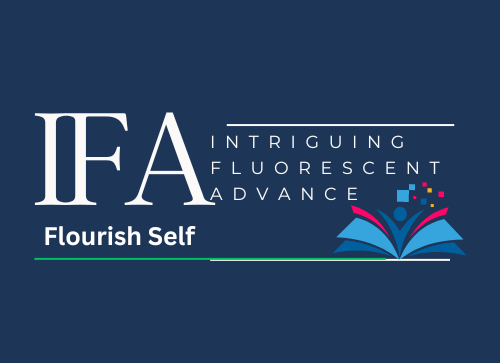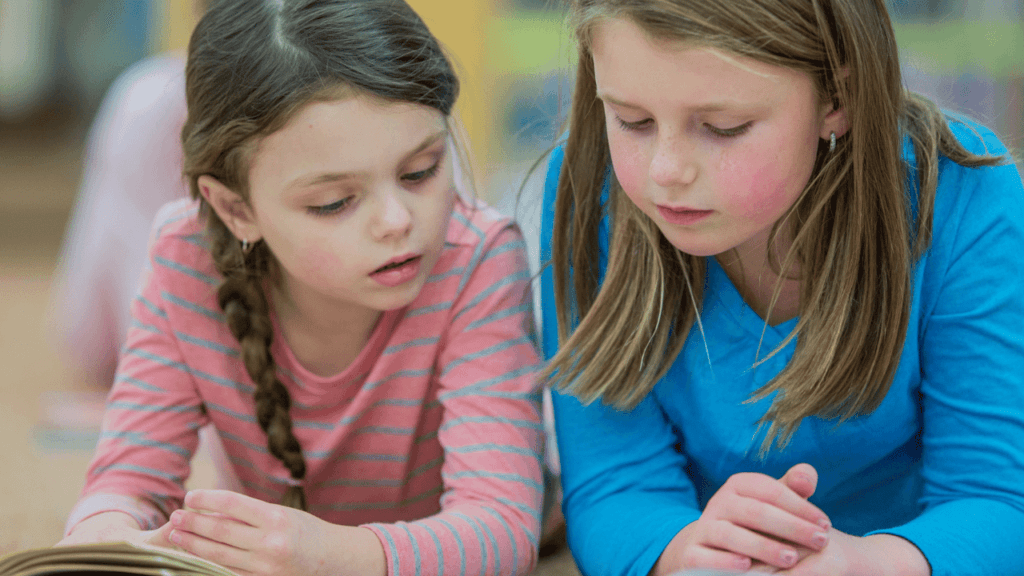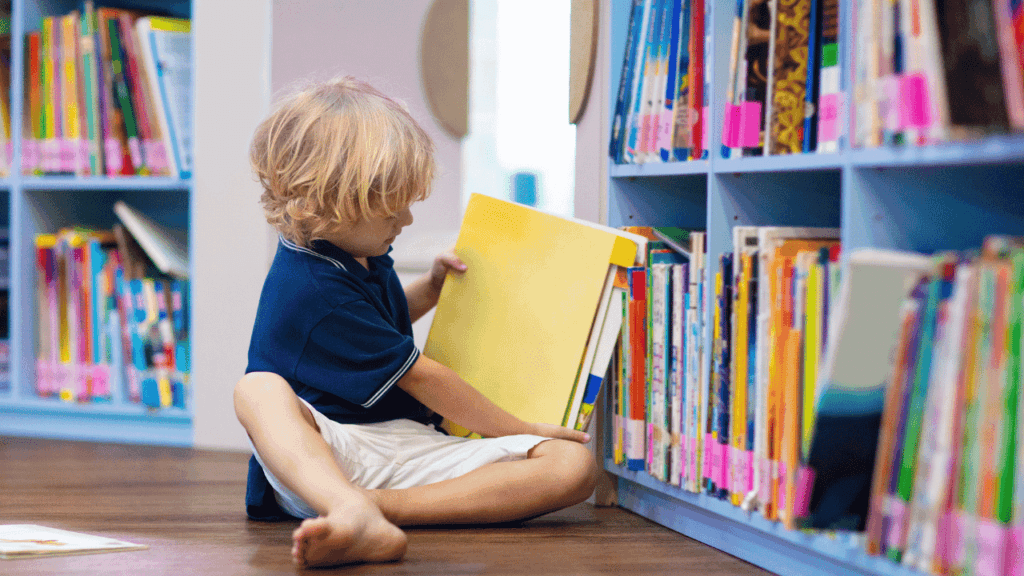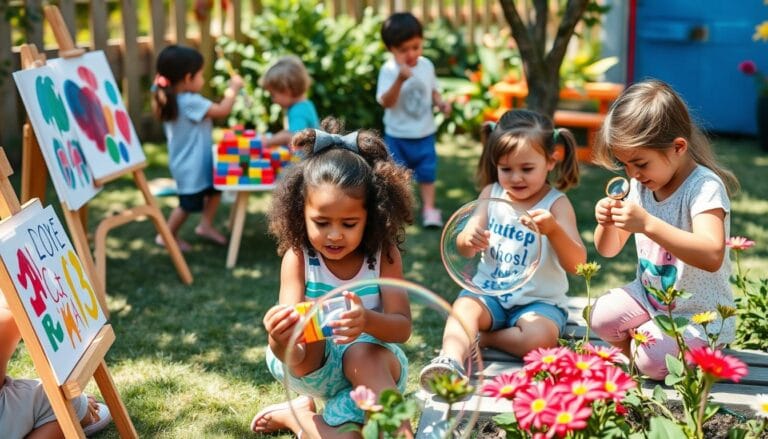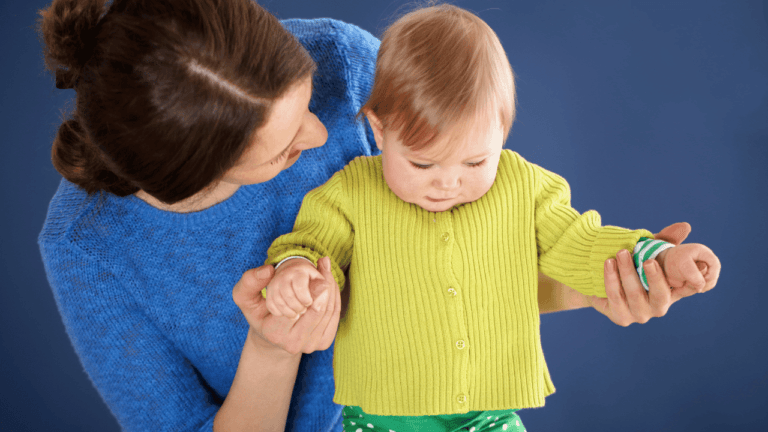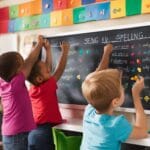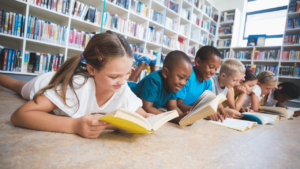
Discover the Best Books on Childhood Development
Start a journey to understand Best Books on Childhood Development with our top picks. As a parent, caregiver, or teacher, you shape children’s lives. These books will give you the tools to help them grow.
Explore child psychology and learn to support their growth. Our books cover topics like brain development and behavior. They also talk about communication and building resilience.
These books are great for new parents or experienced teachers. They offer insights and advice for creating a positive environment. You’ll find research, strategies, and examples to help you.
Begin your journey today. Use our selection of the best books on childhood development to help the children you care about reach their full potential.
Key Takeaways
- Discover the best books on childhood development to enhance your parenting or teaching skills
- Gain valuable insights into child psychology, brain development, and behavior management
- Learn effective communication strategies and techniques to nurture resilience in children
- Explore evidence-based practices and real-life examples to create a positive and nurturing environment
- Empower yourself with knowledge to unlock the full potential of the children in your care
Understanding the Importance of Childhood Development
As parents and educators, understanding childhood development is key. It helps us support and guide children as they grow. By reading classic books on childhood development, we learn a lot about how children grow.
The Critical Role of Early Years in Shaping a Child’s Future
The early years are vital for a child’s development. The book “Transforming the Workforce for Children Birth Through Age 8: A Unifying Foundation” shows this. It was published by the National Academies Press in 2015.
This book talks about the first eight years being crucial. It looks at how children learn and grow from birth to age 8. It covers important topics like cognitive processes and socioemotional skills.
“The early years of a child’s life are a critical period for establishing a strong foundation for future learning and growth.” – Transforming the Workforce for Children Birth Through Age 8: A Unifying Foundation
Key Areas of Child Development: Physical, Cognitive, and Emotional
Childhood development includes physical, cognitive, and emotional growth. Books like “Your Child’s Growing Mind: Brain Development and Learning From Birth to Adolescence” by Jane M. Healy are helpful. They give insights into these areas.
“Your Child’s Growing Mind” talks about brain development and learning. It covers topics like learning disabilities and the impact of electronic media. “The Teenage Brain: A Neuroscientist’s Survival Guide to Raising Adolescents and Young Adults” by Frances E. Jensen also offers valuable information.
| Key Area | Description |
|---|---|
| Physical Development | Growth and changes in the body, including fine and gross motor skills. |
| Cognitive Development | Development of thinking, learning, and problem-solving abilities. |
| Emotional Development | Understanding and managing feelings, as well as building relationships. |
By reading recommended books on childhood development, we learn a lot. This knowledge helps us create supportive environments. It sets children up for a bright future.
Essential Books for Parents and Caregivers
Being a parent or caregiver can feel overwhelming. There are so many books on child development out there. It’s hard to know which ones are worth your time. We’ve picked out the best books on childhood development for you. They offer practical advice and strategies to help your child grow.
The Whole-Brain Child by Daniel J. Siegel and Tina Payne Bryson
“The Whole-Brain Child” is a game-changer for parents. It helps you understand your child’s mind. Daniel J. Siegel and Tina Payne Bryson share 12 strategies for healthy brain development. This leads to calmer, happier kids.
No-Drama Discipline by Daniel J. Siegel and Tina Payne Bryson
“No-Drama Discipline” offers a new way to discipline kids. It moves away from punishment and towards teaching. By focusing on connection and communication, parents can help their children develop self-discipline and emotional regulation skills.
How to Talk So Kids Will Listen & Listen So Kids Will Talk by Adele Faber and Elaine Mazlish
Effective communication is key to building strong relationships with children. “How to Talk So Kids Will Listen & Listen So Kids Will Talk” gives practical strategies for better communication. It helps children deal with their feelings and sets firm limits while keeping a loving connection.
| Book Title | Authors | Key Takeaways |
|---|---|---|
| The Whole-Brain Child | Daniel J. Siegel and Tina Payne Bryson | 12 strategies for nurturing brain development and promoting emotional intelligence |
| No-Drama Discipline | Daniel J. Siegel and Tina Payne Bryson | A fresh approach to discipline that focuses on connection and communication |
| How to Talk So Kids Will Listen & Listen So Kids Will Talk | Adele Faber and Elaine Mazlish | Practical strategies for improving parent-child communication and setting firm limits |
“What’s best for our children is what’s best for us. When we feel at peace with our choices as parents and know that we’re doing our best to be thoughtful and loving, our kids are more likely to be at peace with themselves.”
– Adele Faber, “How to Talk So Kids Will Listen & Listen So Kids Will Talk”
These essential parenting books on child development give you the tools and insights you need. They help support your child’s growth and create a loving home environment. By using the strategies and techniques from these top childhood development books, you’ll be on your way to raising emotionally intelligent, resilient children.
Nurturing Cognitive Development in Children
We all want the best for our children’s minds. Luckily, there are many books on early childhood development to help us. These books give us strategies and tips to help our kids grow.
“Brain Rules for Baby” by John Medina is a top pick. It explores how a child’s brain grows from birth to age five. Medina shares 12 key principles to raise smart and happy kids. This book is funny and practical, making it a great read for parents.
Brain Rules for Baby by John Medina
“Brain Rules for Baby” is a go-to for parents wanting to understand their child’s mind. Medina presents 12 essential principles backed by science. His writing is engaging and easy to follow, making the book fun and informative.
“What’s the single most important thing you can do during pregnancy? What does watching TV do to a child’s brain? What’s the best way to handle temper tantrums? Scientists know.” – John Medina, Brain Rules for Baby
The Scientist in the Crib by Alison Gopnik, Andrew N. Meltzoff, and Patricia K. Kuhl
“The Scientist in the Crib” by Alison Gopnik, Andrew N. Meltzoff, and Patricia K. Kuhl is another key book. It dives into how infants and young children learn and think. The authors, experts in child development, share insights from psychology, neuroscience, and artificial intelligence.
This book shows how young minds are capable of amazing things. It talks about their ability to learn language, understand emotions, and find their identity. The authors make complex science easy to understand, offering practical advice for parents and teachers.
| Book Title | Author(s) | Key Focus | Rating |
|---|---|---|---|
| Brain Rules for Baby | John Medina | 12 brain rules for raising smart and happy children | 4.7 out of 5 stars (2,682 reviews) |
| The Scientist in the Crib | Alison Gopnik, Andrew N. Meltzoff, Patricia K. Kuhl | Cognitive development in infants and young children | 4.5 out of 5 stars (158 reviews) |
By using the insights from these books, we can create a great environment for our kids. This environment supports their growth and prepares them for a future full of learning and success.
Fostering Emotional Intelligence and Resilience
In today’s fast world, teaching kids emotional smarts and resilience is key. As parents and caregivers, we can shape our kids’ emotional health. The best parenting books on child development give us great tips and strategies for these skills.
Raising An Emotionally Intelligent Child by John Gottman
“Raising An Emotionally Intelligent Child” by John Gottman is a top pick for parents. It teaches a five-step “emotion coaching” method. This helps kids understand and manage their feelings better.
By accepting their emotions and guiding them, parents can boost empathy and self-awareness. This builds a strong emotional base for kids.
The Power of Showing Up by Daniel J. Siegel and Tina Payne Bryson
“The Power of Showing Up” by Daniel J. Siegel and Tina Payne Bryson is all about the power of being there for your kids. They show how being emotionally present helps kids feel secure and resilient. It teaches them to handle stress better.
This book gives practical advice on creating a caring environment. It’s all about supporting your child’s emotional health.
| Book Title | Author(s) | Key Takeaways |
|---|---|---|
| Raising An Emotionally Intelligent Child | John Gottman | Five-step “emotion coaching” process for understanding and regulating emotions |
| The Power of Showing Up | Daniel J. Siegel and Tina Payne Bryson | Importance of parental presence and attunement for secure attachments and resilience |
Using the wisdom from these best books on childhood development, parents can help their kids grow emotionally smart and resilient. Parenting is a journey, and these books are great guides.
Best Books on Childhood Development for Educators
As educators, knowing about childhood development is key. It helps us guide and support students better. By reading classic and new books on child development, teachers can learn new strategies. Here are some top books for educators to add to their library.
Mind in the Making by Ellen Galinsky
“Mind in the Making” by Ellen Galinsky explores seven essential life skills for kids. It’s a must-read for educators wanting to improve their students’ development. Galinsky shares research-backed tips on skills like focus, critical thinking, and communication.
The Importance of Being Little by Erika Christakis
Erika Christakis, an early childhood expert, talks about preschoolers’ needs in “The Importance of Being Little.” This book challenges old ways of teaching young kids. Christakis shows how play and relationships are key for their growth. She gives educators new ideas for creating supportive learning spaces.
Yardsticks: Child and Adolescent Development Ages 4-14 by Chip Wood
“Yardsticks” by Chip Wood is a detailed guide for understanding kids and teens from 4 to 14. It’s a great resource for educators to grasp the milestones of their students. Wood offers practical advice for meeting different learning needs.
Other books worth reading include:
- “Raising Cain: Protecting the Emotional Lives of Boys” by Dan Kindlon and Michael Thompson, focusing on boys’ emotional growth.
- “Raising Girls” by Gisela Preuschoff, offering a five-step guide for supporting girls’ development and mental health.
- “Cultivating the Genius of Black Children” by Debra Ren-Etta Sullivan, helping educators understand the achievement gap for Black students.
- “Understand Child Development (Teach Yourself)” by Carolyn Meggitt, covering growth from birth to 16, perfect for non-psychology teachers.
- “The Whole-Brain Child” by Daniel J. Siegel and Tina Payne Bryson, providing insights into brain development and classroom management.
| Book Title | Author(s) | Member Price | Regular Price |
|---|---|---|---|
| Honoring Voices Within Infant and Early Childhood Mental Health | Multiple Authors | $35.95 | $43.95 |
| Early Connections: A Parent Café Curriculum from ZERO TO THREE | ZERO TO THREE | $120.00 | $150.00 |
| DC:0-5 Casebook | ZERO TO THREE | $39.99 | $49.99 |
| RIOS™ Guide for Reflective Supervision and Consultation in the Infant and Early Childhood Field | ZERO TO THREE | $31.99 | $39.99 |
| Linking Sensory Integration and Mental Health | Multiple Authors | $27.20 | $34.00 |
By diving into childhood development books, educators can better understand their students. This knowledge helps create supportive and effective learning environments. It’s all about fostering the growth of every child in their care.
Navigating the Challenges of Toddlerhood
Raising toddlers is exciting but can be tough. Parents often look for the best books on childhood development for help. These books offer insights and strategies to support their children’s growth and well-being.
“The Montessori Toddler” by Simone Davies is a great choice for parents. It uses the Montessori method to help create a nurturing environment. This encourages independence, self-discipline, and a love for learning.
“No Bad Kids” by Janet Lansbury is another must-read. It focuses on toddler discipline with a compassionate approach. Lansbury’s experience makes this book a valuable resource for building strong relationships with toddlers.
“The Whole-Brain Child” by Daniel J. Siegel and Tina Payne Bryson is groundbreaking. It shows how toddlers struggle with logic and the importance of emotional communication in their development.
Parenting books offer specific guidance for tackling challenges. For example, The Strategist lists books for exploring feelings, anger, fears, self-control, friendship troubles, grief, and divorce:
| Category | Age Group | Number of Books |
|---|---|---|
| Exploring Feelings | Infants | 4 |
| Exploring Feelings | Toddlers | 4 |
| Exploring Feelings | Older Toddlers and Little Kids | 10 |
| Coping with Anger | Toddlers | 3 |
| Coping with Anger | Older Toddlers and Little Kids | 10 |
| Understanding Friendship Troubles | Infants | 1 |
| Understanding Friendship Troubles | Toddlers | 3 |
| Understanding Friendship Troubles | Older Toddlers and Little Kids | 13 |
| Understanding Divorce | Toddlers and Little Kids | 10 |
By using these top childhood development books, parents can support their toddlers. They can help them through the joys and challenges of this stage. With the right guidance and support, toddlers can grow, learn, and be happy for a lifetime.
Supporting Children with Special Needs
Parenting a child with special needs is rewarding yet challenging. It requires a special approach and understanding. Luckily, many helpful resources are available. These include parenting books on child development for kids with autism, ADHD, and more.
These books share insights from authors with personal experiences. They offer parents the knowledge and confidence they need. By using these resources, parents can learn how to help their children succeed.
The Explosive Child by Ross W. Greene
“The Explosive Child” by Ross W. Greene offers a new way to think about parenting. It helps parents understand and support children who are easily frustrated. This book is great for families facing tough behaviors, making it a top choice for understanding child development.
The Out-of-Sync Child by Carol Stock Kranowitz
“The Out-of-Sync Child” by Carol Stock Kranowitz is key for parents and teachers. It tackles the issues of children with sensory processing disorder. Kranowitz’s advice and strategies make this book invaluable for those working with kids who struggle with sensory integration.
| Book Title | Author | Focus Area |
|---|---|---|
| The Bipolar Child | Dimitri Papolos | Early-onset bipolar disorder |
| What To Expect When Parenting A Child With ADHD | Penny Williams | Parenting strategies for ADHD |
| Helping Your Anxious Child | Various Experts | Cognitive behavioral therapy for anxiety |
Exploring these resources helps parents understand their child’s needs better. It also teaches them how to support their child best. With these books and professional advice, families can face the challenges and joys of raising a child with special needs. This way, every child can reach their full potential.
Insights from Different Parenting Cultures
Looking at parenting from around the world gives us new ideas on raising kids. Two classic books on child development are “Bringing Up Bébé” and “The Happiest Kids in the World”. They show different ways to raise happy, healthy kids.
“Bringing Up Bébé” by Pamela Druckerman talks about French parenting. She notes how French parents teach kids to wait, respect boundaries, and enjoy good food early on. This is different from American parenting, which often focuses on kids’ success and fun.
“The Happiest Kids in the World” by Rina Mae Acosta and Michele Hutchison looks at Dutch parenting. They show how Dutch parents value kids’ happiness and independence. Dutch kids are encouraged to play outside and learn to be self-reliant.
Bringing Up Bébé by Pamela Druckerman
“Bringing Up Bébé” is a recommended book on childhood for parents wanting to learn from the French. Druckerman says French parents teach kids to be independent and self-controlled. They also introduce kids to many foods, helping them develop a refined taste.
French parents use a strict framework, or “le cadre,” to raise their kids. This gives kids a sense of security and predictability. French parents also focus on intrinsic motivation, not just praise and rewards. This helps kids become confident and well-adjusted.
“The French believe that kids feel confident when they’re able to do things for themselves, and do those things well.” – Pamela Druckerman, Bringing Up Bébé
The Happiest Kids in the World by Rina Mae Acosta and Michele Hutchison
“The Happiest Kids in the World” is a must-read book on parenting perspectives from around the world. Rina Mae Acosta and Michele Hutchison share insights on Dutch parenting. They highlight the importance of play, outdoor activities, and community.
Dutch parents value their kids’ happiness and well-being. They encourage kids to explore and find their interests. Dutch kids learn to be independent and self-reliant from a young age.
“Dutch children are given the freedom to explore, play, and discover without the constant supervision and intervention of adults.” – Rina Mae Acosta and Michele Hutchison, The Happiest Kids in the World
By looking at different parenting cultures, we can learn new ways to raise our kids. “Bringing Up Bébé” and “The Happiest Kids in the World” challenge our parenting beliefs. They remind us that there’s no one right way to parent, and learning from others can make us better parents.
Conclusion
Choosing the best books on childhood development is key for parents, caregivers, and teachers. These top childhood development books give us deep insights into how children grow. They help us understand how to support their growth in a healthy way.
These books show us how early experiences and positive relationships matter. They help us create spaces where children can thrive. This includes building resilience, emotional smarts, and a love for learning.
These books are great for tackling any challenge in raising a child. They cover everything from toddlerhood to supporting kids with special needs. They also dive into the science of brain development.
Authors like Daniel J. Siegel and Tina Payne Bryson share groundbreaking ideas. Pamela Druckerman and Rina Mae Acosta offer cultural insights. These books are full of practical advice and research-backed methods.
By focusing on a child’s emotional and cognitive growth, we build a brighter future. These books remind us that every moment with a child matters. It shapes their life.
As we learn and grow with the children we care about, let’s use these books as guides. They help us make better choices for their development. And that’s an investment in a better world for everyone.
